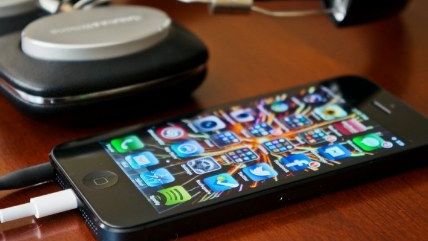Obama and the Justice Dept. May Be Losing the P.R. Battle over Encryption, but Watch the Larger War
Nobody believes it's 'just one phone.'


The government fight to access your private digital data has another front brewing. The Department of Justice wants to be able to listen in on conversations on WhatsApp, an encrypted messaging and phone service owned by Facebook.
Everybody who knows anything about encryption has warned that it is not just about allowing government access to "a single iPhone" possessed by San Bernardino terrorist Syed Farook. The Department of Justice and state-level prosecutors want to force Apple to help them access to dozens, even hundreds of encrypted phones.
In the WhatsApp case, terrorism is not involved. There is a criminal investigation, and a judge has approved a wiretap on somebody's WhatsApp account. The problem, according to The New York Times, is that the program is encrypted on both ends. The DOJ cannot access the content of WhatsApp conversations, even with a wiretap, and neither can Facebook. The path forward for the DOJ is currently unclear, but obviously if the FBI is successful in forcing Apple to help them break through an IPhone's security, we'll see a push here to force WhatsApp to violate its own security for the government's behalf.
It's much more clear, though, that the public relations fight by President Barack Obama and the DOJ is not going the way they hoped it would. Obama may have shown up to take a stand against encryption at South by Southwest, but The New York Times noted over the weekend that the administration may have misjudged how the public would respond. Polls show a country heavily divided, almost equally split depending on how the question was asked. In some questions a plurality said Apple shouldn't help the feds unlock a phone. Perhaps Obama warning that encryption would result in everybody having "a Swiss bank account in their pocket" had the opposite effect. Who wouldn't want a Swiss bank account in his or her pocket?
In the policy publicity wars, one of the bigger "gets" would be a segment from John Oliver's Last Week Tonight. Oliver has managed to make a viral hit out of his HBO show by repackaging talking points as sarcastic, in-depth segments (not a criticism; the show does it remarkably well). Oliver's show weighed in Sunday night, and let's just say White House employees and attorneys at the DOJ will not be sharing the segment on social media:
For those who are following the encryption fight there's not much to learn from Oliver's segment (though I did not realize there were more than 800 different independent encryption programs), but that's not really the point. The segment isn't for people who are following closely. Oliver's power is in repackaging talking points in an engaging fashion that people who are not reading tech sites and magazines will sit through. And in this case, he clearly chose the talking points of the tech industry and privacy experts.
But will it matter in the end? This week we may see the proposed text of legislation in the works by the Senate Intelligence Committee to try to force tech companies to compromise their encryption to assist in law enforcement investigations. Even if Apple is successful in fighting back a judge's order to help the FBI break an iPhone's security, this proposed legislation could potentially be a significant threat to all our private data. For those who have doubts about the dangers of cooperation, remember that iCloud hack from 2014 where celebrities had their nude photos stolen and distributed online? The hackers used a software tool that had been designed only for police and government authorities to crack security on iPhones.
